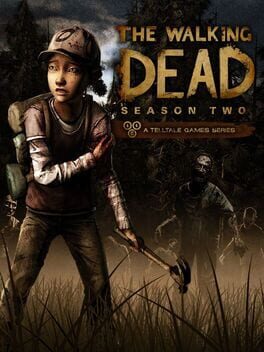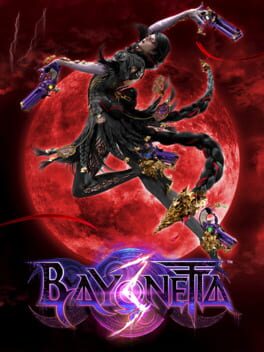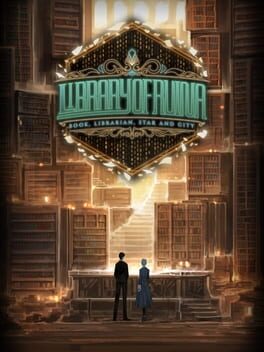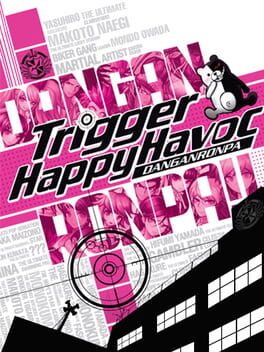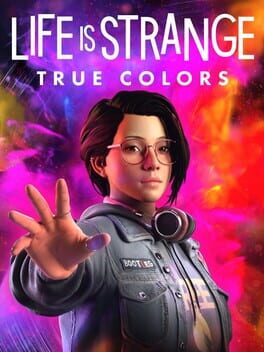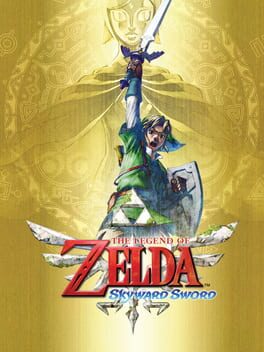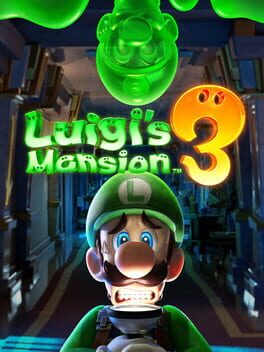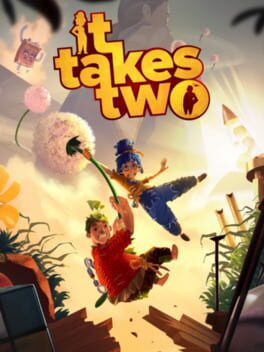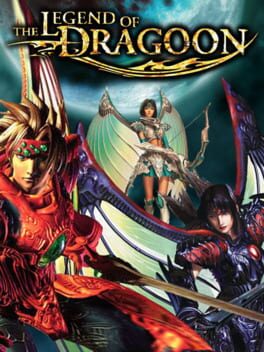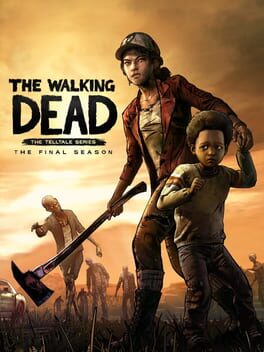kenshero
74 Reviews liked by kenshero
Super Metroid
1994
How do you improve upon perfection? By upping the stakes, the character development, not worrying about catching lightning in a bottle again and allowing the story to flow and let Clementine grow and experience multiple beautiful facets of life not yet tainted by the apocalypse. The drama is unreal, with more twists and turns than ever before-- containing some of the best moments and arcs from any game period. You'll love these characters, you'll hate them, you'll cry your eyes out, and you'll never forget the goat Kenny.
Bayonetta 3
2022
Library of Ruina
2021
Sometimes it's hard to believe that life once gifted a short precious period of childhood where you had so much free time in your hands that you didn't know what to do with, a sentiment that fills me up with a melancholic nostalgia for a fragile memory of fleeting formative wasted hours that were the stillest Time ever had the decency to be for me. It's a painful little trick Nature does, storing the happiest days of your life at the back of your head like a time capsule devised to torment you for all eternity, and it's within that ungraspable longing that Boku no Natsuyasumi 3 truly excels at.
Not overwhelming the player with a forceful list of quests and things to do, Natsuyasumi 3 finds instead meaning in the little mundane joys, discoveries and curiosities that occur inbetween the dead hours of the time you spend in its little farm house, taking pleasure in the beauty of nature present in its gorgeous pre-rendered painted backgrounds and distant fixed camera angles that let you breath in the open wilderness buzzing with birds and insects. A day is not entirely wasted, if you manage to skip a rock over the water a few times more and you come home at dusk to be greeted by a table with your favorite food.
There's definitely something foreign and alien about japan's ability to find the sacred within the ritualization of daily life, even something so seemingly carefree as a child's summer vacation, which probably had a huge part in barring this series from the west. But those small differences in culture equally expose how universal childhood and the awe of doing nothing for a whole day without a single drop of remorse or sadness are. A lot is definitely lost by not being able to understand japanese, and having your translating phone constantly pointed at the screen is definitely not the experience you wanna be having (seriously, how is it that we still dont have the tv technology to auto translate videogames?).
But the summer trip provided by Boku no Natsuyasumi 3's introspective and nostalgic take on childhood is an achievement that surpasses any language barrier. The unique and anxious experience of being away from the comfort of your family and home for the first time, the excitement of finding like minded summer pals that easily forget yesterday's awkwardness, or the pleasant welcomed tiredness that comes from a day fully lived. It seems like it will last forever, until it's suddenly over.
"If I could have it back, all the time that we wasted, I'd only waste it again"
Not overwhelming the player with a forceful list of quests and things to do, Natsuyasumi 3 finds instead meaning in the little mundane joys, discoveries and curiosities that occur inbetween the dead hours of the time you spend in its little farm house, taking pleasure in the beauty of nature present in its gorgeous pre-rendered painted backgrounds and distant fixed camera angles that let you breath in the open wilderness buzzing with birds and insects. A day is not entirely wasted, if you manage to skip a rock over the water a few times more and you come home at dusk to be greeted by a table with your favorite food.
There's definitely something foreign and alien about japan's ability to find the sacred within the ritualization of daily life, even something so seemingly carefree as a child's summer vacation, which probably had a huge part in barring this series from the west. But those small differences in culture equally expose how universal childhood and the awe of doing nothing for a whole day without a single drop of remorse or sadness are. A lot is definitely lost by not being able to understand japanese, and having your translating phone constantly pointed at the screen is definitely not the experience you wanna be having (seriously, how is it that we still dont have the tv technology to auto translate videogames?).
But the summer trip provided by Boku no Natsuyasumi 3's introspective and nostalgic take on childhood is an achievement that surpasses any language barrier. The unique and anxious experience of being away from the comfort of your family and home for the first time, the excitement of finding like minded summer pals that easily forget yesterday's awkwardness, or the pleasant welcomed tiredness that comes from a day fully lived. It seems like it will last forever, until it's suddenly over.
"If I could have it back, all the time that we wasted, I'd only waste it again"
Makoto is an average Japanese student heading into high school (you’ve probably heard this one before) and receives a letter inviting him to the very exclusive Hopes Peak Academy, reserved for Japan’s best and brightest. Every year, a random student is drawn into the class even without a specific skill, designating them the “Ultimate Lucky Student.” You’re going to be seeing the word “ultimate” a lot here, so buckle up. Each student in the school is designated the “ultimate something,” indicating they are the absolute best in their field, no matter how specific or useless. For example, in Danganronpa (D1 going forward) you’ll meet the Ultimate Programmer (cool!), the Ultimate Pop Star (okay…), and the Ultimate Biker Gang Leader (…). Try not to get too tied up in all this. It’s very anime, I know. These characters, who are presented as 2D and entirely focused around one aspect of personality, are amazingly well crafted. This game leans heavily on what it does best, and that is the characters depth and interaction with each other.
When Makoto arrives at school, he’s gassed and wakes up with 15 other new students, trapped inside the school. And when I say trapped, I mean trapped. The doors and windows are all covered over with steel plates 6 inches thick and bolts bigger than a fist. No one knows what’s going on, and everyone remembers having just arrived moments before getting knocked out. After introductions are made, the kids make their way to the gymnasium where we meet the star of the show - Monokuma. Ah, what a delightful little bastard. Monokuma is the villain of the story, and he is something you haven’t seen before, i guarantee it. Without spoiling too much, he is a mechanical teddy bear controlled by a sadistic game master somewhere watching everyone through cameras mounted all around the school. He’s charismatic, funny, lame, and terrifying all at the same time.
Monokuma outlines the rules of the Killing Game, which you may have surmised was going to happen. The only way out of Hopes Peak is to kill another student without getting caught. When one student kills another, they are put on a class trial, which makes up the game portion of D1. I’ll get to that in a second. If the class as a whole is able to figure out who the killer is, that person is killed. If the class guesses wrong, the killer escapes and the rest of the class is killed. Ostensibly, only one person can escape either way. The students are given free reign of the boarding school with all its amenities and are sent on their way.
As you imagine, while they are all initially adamant about not taking part in the killing game, it only takes about 3 days for one of them to break. The game follows you as Makoto conducting investigations after a murder, piecing together evidence, and going to the class trials. There’s a lot of downtime between each trial and the next murder, called “School Life.” This is the visual novel part, and can largely be skipped if you like. You collect coins, buy gifts for specific classmates, build affinity, unlock new conversations with some light romance options, etc. Pretty standard fare for an anime visual novel. That’s when the murder happens.
The class trial consists of several minigames as well as logic puzzles that become pretty difficult to solve in the second part of the game. Play hangman, twin stick arcade shooters, and shoot logic bullets from your idea gun to support or refute classmates’ arguments. It sounds crazy but it’s very well done, and is pretty difficult. And let’s get to that right now: this is a hard game for the most part. You WILL NOT solve any of the murders before the trial begins, and if you think you have, you’re in for a rude awakening. They get more cleverly designed as they go and by the end you’ll just feel like a big jackass for ever thinking you could be a detective. But that moment when you realize everything and connect that last dot halfway through a class trial… it’s priceless.
Besides the characters, the other big selling point of this game is the music. I can’t really describe how good and ridiculous it is, so just take a listen to the main theme. It’s a banger, no two ways about it.
This game is about 35 hours long, so it’s a bit of a commitment to be sure. The only negative thing I have to say about it is the clunky controls during the School Life parts, but that doesn’t make up a lot of the game and it’s mostly skippable, plus the fast travel option helps. My last note is that the ending will blow your mind and fuck you up, and you’ll probably race to start downloading the second game.
This is a violent game. It’s gorey. It’s unforgiving. But it’s also hilarious. There’s a weird line Spike Chunsoft straddles here that I didn’t know about between sadistic murders and funny pranks. But again, it’s so self aware of how ridiculous it is it all feels right. Monokuma is a great and memorable villain, and you’ll find yourself casually checking Amazon to see how much a plush costs.
Danganronpa knows its strengths and leans on them - the ridiculous dialogue and puns, the deeply detailed characters, the wacky art and music. The school life sections, which I find to be tedious, are mostly skippable. The murders are brilliantly put together and full of red herrings, and you’ll walk into the class trial feeling confident but looking like a total dumbass. The logic puzzles are difficult but mostly pretty fair, and you’ll think “oh I see I should have done that” a lot. Yes, this is an anime game, and it’s somewhere between a visual novel and an arcade puzzle, but even if you don’t like any of those things I honestly think you might still like this game.
When Makoto arrives at school, he’s gassed and wakes up with 15 other new students, trapped inside the school. And when I say trapped, I mean trapped. The doors and windows are all covered over with steel plates 6 inches thick and bolts bigger than a fist. No one knows what’s going on, and everyone remembers having just arrived moments before getting knocked out. After introductions are made, the kids make their way to the gymnasium where we meet the star of the show - Monokuma. Ah, what a delightful little bastard. Monokuma is the villain of the story, and he is something you haven’t seen before, i guarantee it. Without spoiling too much, he is a mechanical teddy bear controlled by a sadistic game master somewhere watching everyone through cameras mounted all around the school. He’s charismatic, funny, lame, and terrifying all at the same time.
Monokuma outlines the rules of the Killing Game, which you may have surmised was going to happen. The only way out of Hopes Peak is to kill another student without getting caught. When one student kills another, they are put on a class trial, which makes up the game portion of D1. I’ll get to that in a second. If the class as a whole is able to figure out who the killer is, that person is killed. If the class guesses wrong, the killer escapes and the rest of the class is killed. Ostensibly, only one person can escape either way. The students are given free reign of the boarding school with all its amenities and are sent on their way.
As you imagine, while they are all initially adamant about not taking part in the killing game, it only takes about 3 days for one of them to break. The game follows you as Makoto conducting investigations after a murder, piecing together evidence, and going to the class trials. There’s a lot of downtime between each trial and the next murder, called “School Life.” This is the visual novel part, and can largely be skipped if you like. You collect coins, buy gifts for specific classmates, build affinity, unlock new conversations with some light romance options, etc. Pretty standard fare for an anime visual novel. That’s when the murder happens.
The class trial consists of several minigames as well as logic puzzles that become pretty difficult to solve in the second part of the game. Play hangman, twin stick arcade shooters, and shoot logic bullets from your idea gun to support or refute classmates’ arguments. It sounds crazy but it’s very well done, and is pretty difficult. And let’s get to that right now: this is a hard game for the most part. You WILL NOT solve any of the murders before the trial begins, and if you think you have, you’re in for a rude awakening. They get more cleverly designed as they go and by the end you’ll just feel like a big jackass for ever thinking you could be a detective. But that moment when you realize everything and connect that last dot halfway through a class trial… it’s priceless.
Besides the characters, the other big selling point of this game is the music. I can’t really describe how good and ridiculous it is, so just take a listen to the main theme. It’s a banger, no two ways about it.
This game is about 35 hours long, so it’s a bit of a commitment to be sure. The only negative thing I have to say about it is the clunky controls during the School Life parts, but that doesn’t make up a lot of the game and it’s mostly skippable, plus the fast travel option helps. My last note is that the ending will blow your mind and fuck you up, and you’ll probably race to start downloading the second game.
This is a violent game. It’s gorey. It’s unforgiving. But it’s also hilarious. There’s a weird line Spike Chunsoft straddles here that I didn’t know about between sadistic murders and funny pranks. But again, it’s so self aware of how ridiculous it is it all feels right. Monokuma is a great and memorable villain, and you’ll find yourself casually checking Amazon to see how much a plush costs.
Danganronpa knows its strengths and leans on them - the ridiculous dialogue and puns, the deeply detailed characters, the wacky art and music. The school life sections, which I find to be tedious, are mostly skippable. The murders are brilliantly put together and full of red herrings, and you’ll walk into the class trial feeling confident but looking like a total dumbass. The logic puzzles are difficult but mostly pretty fair, and you’ll think “oh I see I should have done that” a lot. Yes, this is an anime game, and it’s somewhere between a visual novel and an arcade puzzle, but even if you don’t like any of those things I honestly think you might still like this game.
Life is Strange is all about capturing a specific time, place, and feeling, and bottling it into a decision. The magic of it all is how real it all feels — the people you meet, who trust you, who betray you, who love you. The ramifications of your decisions, no matter how small or innocuous, are felt throughout your community. True Colors has mastered the art form introduced in the original Life is Strange and, against all the odds, surpassed it.
DONTNOD Entertainment’s 2015 Telltale-killer Life is Strange is, to this day, one of my favorite games of all time. Max and Chloe’s coming-of-age story set in the Pacific Northwest was thematically cohesive in all the best ways, showcasing all the love, loss, tragedy, joy and pain of your freshman year of college magnificently. It reminded me of a time when everything was both simple and wildly over-complicated and dramatic, and getting to live in that time for 15 hours again was wonderful.
DONTNOD's follow-up, Life is Strange 2, just didn't hit me quite the same way, and I found myself unable to really connect to Daniel and Sean. I did quite enjoy Deck Nine's shorter prequel game about Chloe and Rachel (maybe I'm just a Chloe simp), Before the Storm, and was pleased to see that they'd come back to the series to create True Colors after Square Enix and DONTNOD parted ways. DONTNOD's follow-ups to Life is Strange, including Life is Strange 2, Vampyr, Tell Me Why and Twin Mirror, have all been fine, at best. True Colors outdoes everything that DONTNOD has produced on every level and at every turn. Almost every time an exciting narrative twist or new gameplay element or powerful moment showed up in True Colors, I couldn't help but wonder why it was something that the studio behind the original just couldn't pull off.
Our story begins with our 21-year-old protagonist, Alex Chen, arriving in Haven Springs to begin a new life and move in with her older brother, Gabe. From the moment, she touches down in the picturesque Colorado mountain town, it is clear that Alex is not a typical game protagonist. Reading through her journals and text messages when she steps off the bus reveals that Alex is… well, probably not a person you’d want to be friends with. True Colors makes no effort to portray Alex as quirky or endearing; instead she is presented as a typical human with big ups and big downs, and the Alex earns the player’s affection throughout the story through her words and actions.
Like the other games in the series, the driving force of True Colors is Alex’s superpower. She is an empath, meaning that she can see colored auras around other people that indicate which strong emotion they’re feeling and can dig deeper to find out why they feel this way. Compared to the other powers we’ve seen in this universe (rewinding time, sonic screams, telekinesis) Alex’s power is… well, underwhelming to say the least. She describes it as a curse, and at first it’s hard to disagree with her. She sees the truth of what everyone around her feels, unfiltered, and hears their most hateful, depressing, and disgusting thoughts against her own will.
Throughout the course of True Colors, Alex learns to harness this power for the greater good, but in a certifiably non-heroic way. When someone feels deep fear, for instance, she can peer into their heart and see what causes the fear, why they’re afraid, and exactly what they need to hear to fight that feeling. It is emotional manipulation on the highest level, but Alex’s interventions into these social situations seem to make everyone’s lives better. Some characters find her a calming presence for that reason; others are wildly uncomfortable around her. She always knows exactly what to say in any situation, but it’s up the player to decide whether she should say it.
The absolutely phenomenal cast of characters is what elevates this game above its predecessor. Ryan and Steph serve as Alex’s main sidekicks, and you can romance either one of them (but not both, sadly), but the supporting cast around them just feels real. I’ve met people like Eleanor, like Riley, like Duckie or Jed before. They finely walk the line between believable small town folk and people you’ve met over the years in a way that none of the previous games have managed. Every character is developed out with backstory, layered relationships with Alex and other residents, and complex emotions that understand that humans are not really good or bad.
Deck Nine Studios is based out of the Colorado mountains, and setting the game close to home was the right decision. Dialogue, vernacular, slang and cadence don’t feel like a bunch of French guys in their 30s writing for teenage girls (the original Life is Strange); it all feels natural, conversational, and comprehensive. Motion capture adds so much to True Colors, and all around it feels like a much higher budget affair than previous entries. The voice acting of the main cast is fantastic, and the supporting cast mostly excels, too.
The soundtrack is excellent, and if you’re into the alt indie stuff the previous games relied on you’re in for a treat. Alex has a marvelous singing voice (courtesy of singer mxmtoon) and her musical performances are certainly highlights of the game. Music plays a big part in True Colors, from Steph and Adam’s record store to Gabe’s guitar he leaves as a gift to Alex. Thematically, it works wonders for the story and atmosphere.
There are many, many small decisions that have micro-ramifications throughout dialogue, but as is usual about three times per each of the five chapters Alex encounters a literal game-changing decision. The effects are not going to be immediately obvious; in fact, the whole story is so seamless no matter which of the dozens of branches you follow that you’d never know it was choice based unless you watch another playthrough. My single grievance with True Colors is that even on next-gen consoles, it’s locked to 30 FPS (it does offer Ray Tracing though). I recommend the PC version for this reason.
Alex is a brilliantly written and developed character, aided by probably the best game performance of the year by Erika Mori. She’s a protagonist that has to earn your trust, rather than asking for it implicitly at the start. When her horrifying past reveals itself to the player in the final act, I think anyone with a heart will find themselves in her shoes for just a moment. She feels like a human. Simultaneously brave, kind, enraged, thoughtful, selfish, vengeful and hopeful. Layered, complex, unpredictable until she isn’t. True Colors is an apt title for this game; it’s not just about Alex seeing others true feelings, but understanding her own multicolored trauma.
Life is Strange: True Colors is not a coming-of-age story like its forbearers. Alex has already grown and become the person she’s going to be by the time the story begins. True Colors is a story about grief. The painstaking, hour by hour confrontation with reality when a loved one is lost. When everything in your life is taken away from you with one single light snuffed out. It’s pure existential terror, and this game handles the heavy topic in such a way as to make it feel real without beating down the player. While grief is the main driver of the story, it’s truly about starting over. New beginnings, and all that. Not finding a place to call home, but forging it with your own two hands.
DONTNOD Entertainment’s 2015 Telltale-killer Life is Strange is, to this day, one of my favorite games of all time. Max and Chloe’s coming-of-age story set in the Pacific Northwest was thematically cohesive in all the best ways, showcasing all the love, loss, tragedy, joy and pain of your freshman year of college magnificently. It reminded me of a time when everything was both simple and wildly over-complicated and dramatic, and getting to live in that time for 15 hours again was wonderful.
DONTNOD's follow-up, Life is Strange 2, just didn't hit me quite the same way, and I found myself unable to really connect to Daniel and Sean. I did quite enjoy Deck Nine's shorter prequel game about Chloe and Rachel (maybe I'm just a Chloe simp), Before the Storm, and was pleased to see that they'd come back to the series to create True Colors after Square Enix and DONTNOD parted ways. DONTNOD's follow-ups to Life is Strange, including Life is Strange 2, Vampyr, Tell Me Why and Twin Mirror, have all been fine, at best. True Colors outdoes everything that DONTNOD has produced on every level and at every turn. Almost every time an exciting narrative twist or new gameplay element or powerful moment showed up in True Colors, I couldn't help but wonder why it was something that the studio behind the original just couldn't pull off.
Our story begins with our 21-year-old protagonist, Alex Chen, arriving in Haven Springs to begin a new life and move in with her older brother, Gabe. From the moment, she touches down in the picturesque Colorado mountain town, it is clear that Alex is not a typical game protagonist. Reading through her journals and text messages when she steps off the bus reveals that Alex is… well, probably not a person you’d want to be friends with. True Colors makes no effort to portray Alex as quirky or endearing; instead she is presented as a typical human with big ups and big downs, and the Alex earns the player’s affection throughout the story through her words and actions.
Like the other games in the series, the driving force of True Colors is Alex’s superpower. She is an empath, meaning that she can see colored auras around other people that indicate which strong emotion they’re feeling and can dig deeper to find out why they feel this way. Compared to the other powers we’ve seen in this universe (rewinding time, sonic screams, telekinesis) Alex’s power is… well, underwhelming to say the least. She describes it as a curse, and at first it’s hard to disagree with her. She sees the truth of what everyone around her feels, unfiltered, and hears their most hateful, depressing, and disgusting thoughts against her own will.
Throughout the course of True Colors, Alex learns to harness this power for the greater good, but in a certifiably non-heroic way. When someone feels deep fear, for instance, she can peer into their heart and see what causes the fear, why they’re afraid, and exactly what they need to hear to fight that feeling. It is emotional manipulation on the highest level, but Alex’s interventions into these social situations seem to make everyone’s lives better. Some characters find her a calming presence for that reason; others are wildly uncomfortable around her. She always knows exactly what to say in any situation, but it’s up the player to decide whether she should say it.
The absolutely phenomenal cast of characters is what elevates this game above its predecessor. Ryan and Steph serve as Alex’s main sidekicks, and you can romance either one of them (but not both, sadly), but the supporting cast around them just feels real. I’ve met people like Eleanor, like Riley, like Duckie or Jed before. They finely walk the line between believable small town folk and people you’ve met over the years in a way that none of the previous games have managed. Every character is developed out with backstory, layered relationships with Alex and other residents, and complex emotions that understand that humans are not really good or bad.
Deck Nine Studios is based out of the Colorado mountains, and setting the game close to home was the right decision. Dialogue, vernacular, slang and cadence don’t feel like a bunch of French guys in their 30s writing for teenage girls (the original Life is Strange); it all feels natural, conversational, and comprehensive. Motion capture adds so much to True Colors, and all around it feels like a much higher budget affair than previous entries. The voice acting of the main cast is fantastic, and the supporting cast mostly excels, too.
The soundtrack is excellent, and if you’re into the alt indie stuff the previous games relied on you’re in for a treat. Alex has a marvelous singing voice (courtesy of singer mxmtoon) and her musical performances are certainly highlights of the game. Music plays a big part in True Colors, from Steph and Adam’s record store to Gabe’s guitar he leaves as a gift to Alex. Thematically, it works wonders for the story and atmosphere.
There are many, many small decisions that have micro-ramifications throughout dialogue, but as is usual about three times per each of the five chapters Alex encounters a literal game-changing decision. The effects are not going to be immediately obvious; in fact, the whole story is so seamless no matter which of the dozens of branches you follow that you’d never know it was choice based unless you watch another playthrough. My single grievance with True Colors is that even on next-gen consoles, it’s locked to 30 FPS (it does offer Ray Tracing though). I recommend the PC version for this reason.
Alex is a brilliantly written and developed character, aided by probably the best game performance of the year by Erika Mori. She’s a protagonist that has to earn your trust, rather than asking for it implicitly at the start. When her horrifying past reveals itself to the player in the final act, I think anyone with a heart will find themselves in her shoes for just a moment. She feels like a human. Simultaneously brave, kind, enraged, thoughtful, selfish, vengeful and hopeful. Layered, complex, unpredictable until she isn’t. True Colors is an apt title for this game; it’s not just about Alex seeing others true feelings, but understanding her own multicolored trauma.
Life is Strange: True Colors is not a coming-of-age story like its forbearers. Alex has already grown and become the person she’s going to be by the time the story begins. True Colors is a story about grief. The painstaking, hour by hour confrontation with reality when a loved one is lost. When everything in your life is taken away from you with one single light snuffed out. It’s pure existential terror, and this game handles the heavy topic in such a way as to make it feel real without beating down the player. While grief is the main driver of the story, it’s truly about starting over. New beginnings, and all that. Not finding a place to call home, but forging it with your own two hands.
Before Breath of the Wild came along, this was my favourite Zelda game. Back then, this often made me feel like the odd one out but these days, it's a lot more common to find people who enjoy this game.
Idk why, but the motion controls are just enjoyable to me. Yes, they sometimes make me yell at the screen, but I feel like it works a lot more often than most people say. I also liked the linearity of the different areas. It's as if the entire overworld is a dungeon this time around. Speaking of dungeons, those are great here as well. Think of the sand ship or the water temple (which is actually a lot of fun in this Zelda game, weird, I know).
And the art style, it's so gorgeous! Everything looks like a painting and the game aged incredibly well because of it. Skyward Sword is also the first Zelda game with a fully orchestrated soundtrack, if I remember correctly, which is just a perfect match for this franchise.
I could go on for a lot longer about what I love about Skyward Sword, like the characters, the atmosphere, the premise that Zelda is Link's girlfriend now, the game's setting in the beginning of the timeline etc etc...
Idk why, but the motion controls are just enjoyable to me. Yes, they sometimes make me yell at the screen, but I feel like it works a lot more often than most people say. I also liked the linearity of the different areas. It's as if the entire overworld is a dungeon this time around. Speaking of dungeons, those are great here as well. Think of the sand ship or the water temple (which is actually a lot of fun in this Zelda game, weird, I know).
And the art style, it's so gorgeous! Everything looks like a painting and the game aged incredibly well because of it. Skyward Sword is also the first Zelda game with a fully orchestrated soundtrack, if I remember correctly, which is just a perfect match for this franchise.
I could go on for a lot longer about what I love about Skyward Sword, like the characters, the atmosphere, the premise that Zelda is Link's girlfriend now, the game's setting in the beginning of the timeline etc etc...
Luigi's Mansion 3
2019
One of the best Switch games on the market. I think if this game had gotten true DLC with some extra floors to explore it would’ve been perfect but as it stands it’s still a phenomenal experience. Definitely my hypest game of 2019. I distinctly remember shutting myself in on Halloween and grinding out this game and it was awesome. Still a bit cartoony for my liking but it’s SO SPECTACULARLY beautiful that I don’t mind. Like this game looks GOOD. It’s one of the highest quality games for Switch and I think Nintendo took note of that and the great sales and promptly bought Next Level Games which was a great decision. Clem is the best. I love Clem. Not enough Clem. Music slaps and the copious amount of secrets is impressive. There’s something so satisfying about collecting money in this series and this game in particular that is so completely unique to these games and I love it. Yah these games are just magnificent. Really hope this becomes a flagship series for Nintendo going forward.
Bayonetta 3
2022
This review contains spoilers
BIG SPOILERS AHEAD!!!!
Well, to preface this, I absolutely adore Bayonetta as a character. As far as the games go, I love the first one and thought the second one was a bit weaker, but still good, which seems to be an unpopular opinion. Then, there is this one…
This is really hard to write a review for. I am giving it 3.5 stars because while the gameplay was all over the place with seemingly no structure, especially at first, it was fun in a guilty pleasure kind of way. I should probably elaborate on “all over the place.” For me, it seemed to go from traditional Bayonetta gameplay to everything else under the sun. First of all, you have three playable characters. One is fun…guess who? Bayonetta. The others, Jeanne and newcomer Viola, just don’t play well. Jeanne’s stealth missions were short, and that was their saving grace. They weren’t satisfying or interesting at all. I was not even stealthy, and still beat them all pretty easily. This desperate attempt to switch up gameplay didn’t gel with me. Viola’s? Her levels made me a tad ragey. They were considerably more difficult than all the others…yet they were mixed in here and there (I think one for every two Bayonetta and one Jeanne chapters?) I have a pet peeve in games when the difficulty jumps around. I like when things progressively get more difficult. Difficulty spikes are fine, but Viola’s levels made some of Bayonetta’s later ones very underwhelming difficulty wise. I am not sure how many people would agree…could have been me.
The demon summons took forever for me to like. Most of them move so incredibly slow, and just aren’t enjoyable to fight as. Also, meeting a new demon in almost or maybe even every chapter got tiring and very formulaic. I might have actually liked one or two of them as characters. Baal stands out for me.
Speaking of characters, well…all the good ol’ faces are there, but I don’t always love their execution. Bayonetta seems not quite as badass as she once was, Jeanne seems like an extension of her, and why is Luka such a hero now? His clumsiness and ineptness is part of why I liked him! Switching up the gender roles made the series fun…as did Bayo (who I always perceived as bisexual) having a sort of “love triangle” with him and Jeanne. I don’t like having a canon couple, but unlike a lot of other people, I wouldn’t have been happy if she ended up with Jeanne either. The playfulness and casualness between Bayonetta and the other two spiced up the series. I don’t think it was cut out to be romantic.
We also have newcomer Viola. For the most part, I found her annoying, probably until the last few chapters where she became endearing. Fighting as her is a pain in the ass, as I mentioned, and everything about her is…lacking. I hate to say it, but I could have done without her.
The ending? I can’t tell you how sad the part after the first credits made me. Annoying “true” final boss aside, Viola taking center stage is just painful. I kind of felt viewing that ending like I did when my favorite band broke up: empty and numb. I guess I will buy the fourth game, but am I looking forward to it? Can’t say I am. Such a shame too, since it was one of my favorite series with one of my favorite protagonists.
All in all, fun, but a disappointment. I don’t know why the writers thought that direction was okay to go in. I love a good multiverse plot too, but this one made me kind of sad, especially at the end, where a story should truly shine.
Glad I played it, but won’t return to it. RIP Bayonetta!
Well, to preface this, I absolutely adore Bayonetta as a character. As far as the games go, I love the first one and thought the second one was a bit weaker, but still good, which seems to be an unpopular opinion. Then, there is this one…
This is really hard to write a review for. I am giving it 3.5 stars because while the gameplay was all over the place with seemingly no structure, especially at first, it was fun in a guilty pleasure kind of way. I should probably elaborate on “all over the place.” For me, it seemed to go from traditional Bayonetta gameplay to everything else under the sun. First of all, you have three playable characters. One is fun…guess who? Bayonetta. The others, Jeanne and newcomer Viola, just don’t play well. Jeanne’s stealth missions were short, and that was their saving grace. They weren’t satisfying or interesting at all. I was not even stealthy, and still beat them all pretty easily. This desperate attempt to switch up gameplay didn’t gel with me. Viola’s? Her levels made me a tad ragey. They were considerably more difficult than all the others…yet they were mixed in here and there (I think one for every two Bayonetta and one Jeanne chapters?) I have a pet peeve in games when the difficulty jumps around. I like when things progressively get more difficult. Difficulty spikes are fine, but Viola’s levels made some of Bayonetta’s later ones very underwhelming difficulty wise. I am not sure how many people would agree…could have been me.
The demon summons took forever for me to like. Most of them move so incredibly slow, and just aren’t enjoyable to fight as. Also, meeting a new demon in almost or maybe even every chapter got tiring and very formulaic. I might have actually liked one or two of them as characters. Baal stands out for me.
Speaking of characters, well…all the good ol’ faces are there, but I don’t always love their execution. Bayonetta seems not quite as badass as she once was, Jeanne seems like an extension of her, and why is Luka such a hero now? His clumsiness and ineptness is part of why I liked him! Switching up the gender roles made the series fun…as did Bayo (who I always perceived as bisexual) having a sort of “love triangle” with him and Jeanne. I don’t like having a canon couple, but unlike a lot of other people, I wouldn’t have been happy if she ended up with Jeanne either. The playfulness and casualness between Bayonetta and the other two spiced up the series. I don’t think it was cut out to be romantic.
We also have newcomer Viola. For the most part, I found her annoying, probably until the last few chapters where she became endearing. Fighting as her is a pain in the ass, as I mentioned, and everything about her is…lacking. I hate to say it, but I could have done without her.
The ending? I can’t tell you how sad the part after the first credits made me. Annoying “true” final boss aside, Viola taking center stage is just painful. I kind of felt viewing that ending like I did when my favorite band broke up: empty and numb. I guess I will buy the fourth game, but am I looking forward to it? Can’t say I am. Such a shame too, since it was one of my favorite series with one of my favorite protagonists.
All in all, fun, but a disappointment. I don’t know why the writers thought that direction was okay to go in. I love a good multiverse plot too, but this one made me kind of sad, especially at the end, where a story should truly shine.
Glad I played it, but won’t return to it. RIP Bayonetta!
It Takes Two
2021
This game has a special place in my heart. I had this as a kid and it was crazy to me that it had so many discs. I loved it as a kid and eventually the discs got scratched and stopped working. Years later I bought another copy of it and played it again. To my surprise it was just as exciting as it was when I was a kid. The combat is fun because each attack has a rhythm you have to hit in order to do full damage and it makes you focus the whole time. The characters and story are nice and it's got a lot of heart put into it. This game deserves more than it got.
Oh man...what a bittersweet ending. a beautiful comeback from the beatdown that was given to me by the previous Walking Dead game. I feel...satisfied.
finishing this long series of games has been emotional but I knew it was time. and I definitely do not regret it for a moment. well and truly worth it.
finishing this long series of games has been emotional but I knew it was time. and I definitely do not regret it for a moment. well and truly worth it.
Yakuza 0
2015
Played this twice now, and i'll never forget a single thing that happened in this game. as a lover of the Yakuza franchise, this one really hit home for me. the perfect telling of our favorite characters' backstories and why they became to be who they are. nothing bad to say at all here, just Perfection.

